|
Getting your Trinity Audio player ready... |
Tabla de Contenido/ Table of Contents
- 1 Events That Have Caused the Decline in Popularity of Carlos Giménez: A Detailed Chronology
- 1.1 Chronology of Controversies
- 1.2 Impact on Carlos Giménez’s Popularity
- 1.3 Conclusion
- 1.4 Frequently Asked Questions (FAQs)
Events That Have Caused the Decline in Popularity of Carlos Giménez: A Detailed Chronology
Introduction
Carlos A. Giménez, congressman for Florida’s 28th District and former Miami-Dade mayor, has been at the center of multiple controversies throughout his career. These controversies, including questionable contracts, transportation projects, and real estate developments, have eroded his popularity, particularly in key strongholds like Miami-Dade and Hialeah. These events have significantly contributed to his political decline.
Chronology of Controversies
2012: No-Bid Contract with Munilla Construction Management
Gimenez approved a $130 million extension for Munilla Construction Management (MCM), a construction company that had working relationships with members of his family and has family ties and was responsible for building the FIU bridge that collapsed
- Criticisms: The lack of a bidding process and the personal connections between Giménez and MCM sparked allegations of favoritism and lack of transparency.
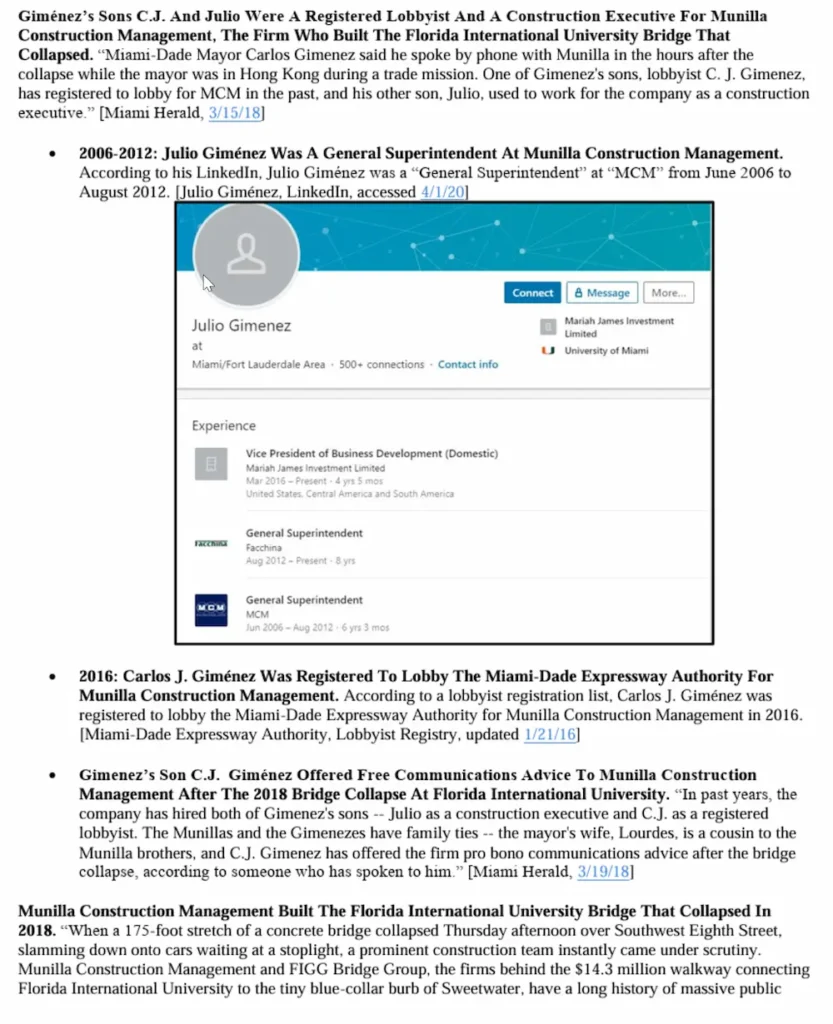
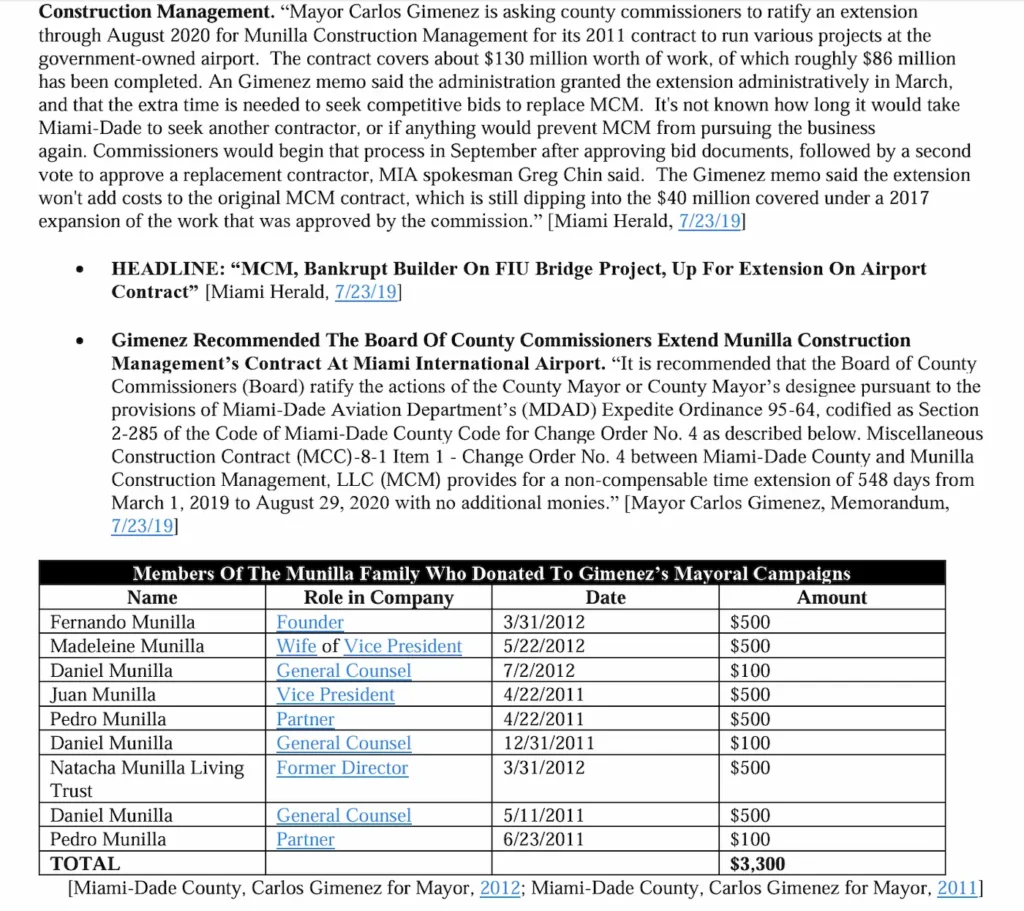
2018: Shift in Transportation Priorities for South Dade
- Key Decision: Giménez supported the implementation of a Bus Rapid Transit (BRT) system instead of expanding the Metrorail, which had been promised to voters in a 2002 referendum.
- Controversy: The $368 million contract for the BRT was awarded to OHL, a company represented by lobbyists close to Giménez, including Jorge Luis López and Pablo Acosta.
- Impact: Residents of South Dade rejected the decision, arguing that rapid buses were an inadequate solution to the area’s transportation issues.
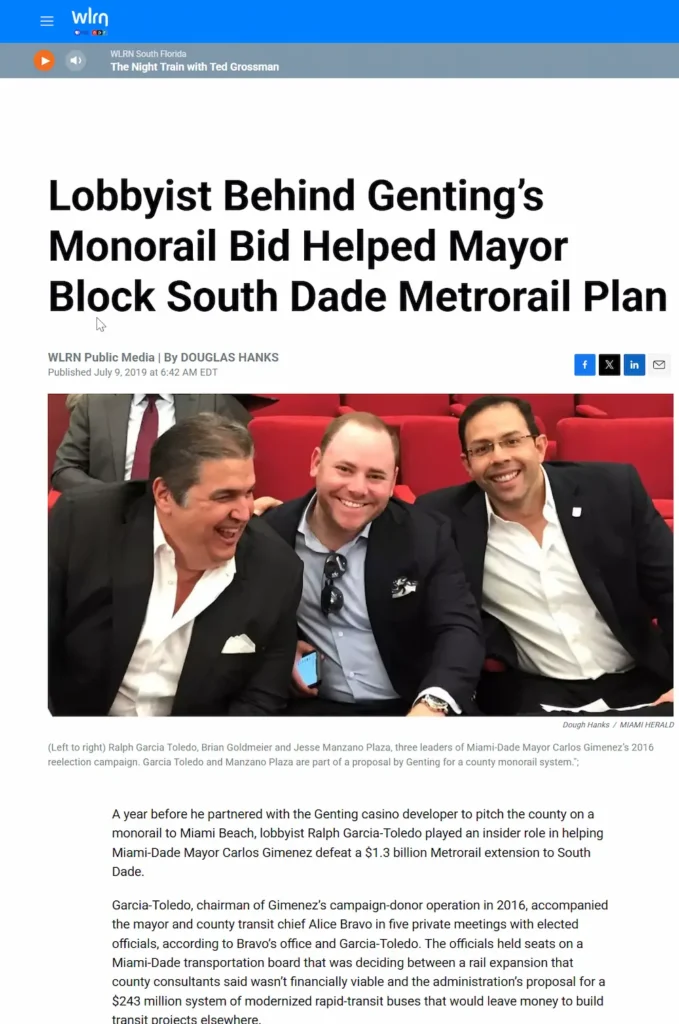
2019: Genting Monorail Project
- Key Action: Giménez backed a monorail project between Miami Beach and downtown Miami, promoted by Genting, a company seeking to expand its influence in the region.
- Key Connections: Ralph Garcia-Toledo, a political ally of Giménez, facilitated meetings with Genting and other stakeholders to push the project forward.
- Conflict Suspicions: The connection between Giménez and the developers, combined with Genting’s interest in building a casino, raised concerns about the fairness of the decision.
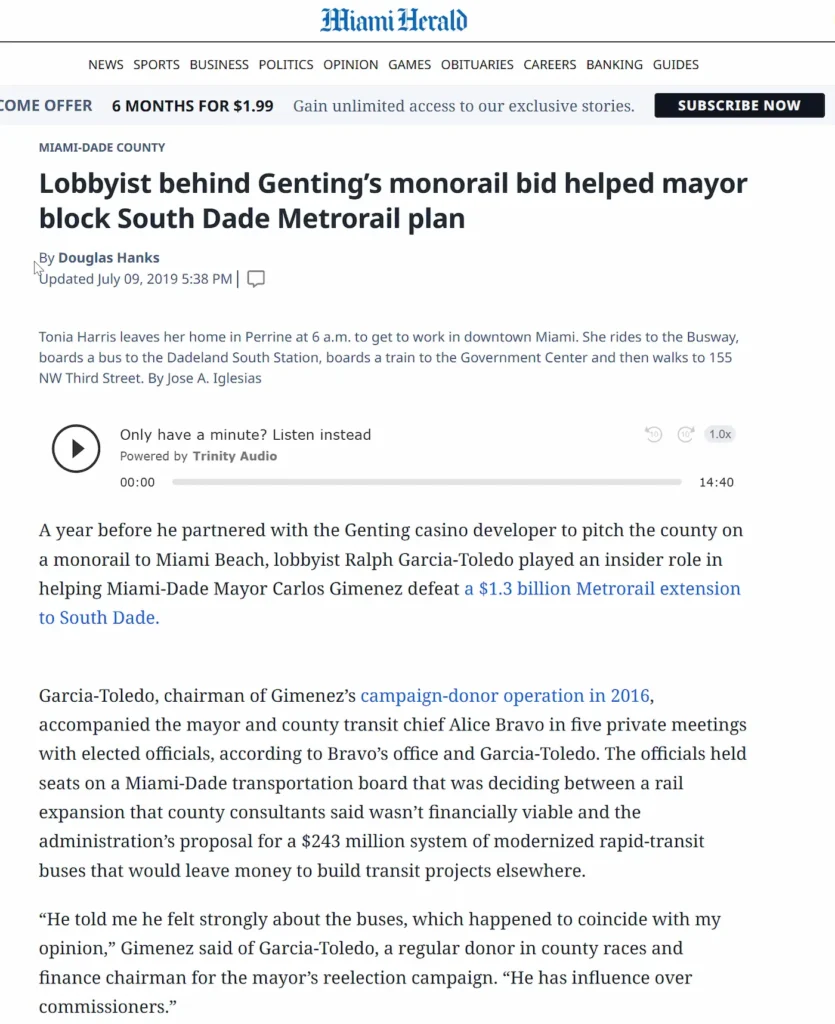
2020: Misuse of Public Resources
- Key Evidence: Leaked messages showed that Giménez used county staff to coordinate responses to political attacks during his congressional campaign.
- Investigations: The case drew the attention of the Miami-Dade Ethics Commission, although it did not result in significant sanctions.
- Political Impact: The controversy reinforced the perception that Giménez used public resources for personal political gain.
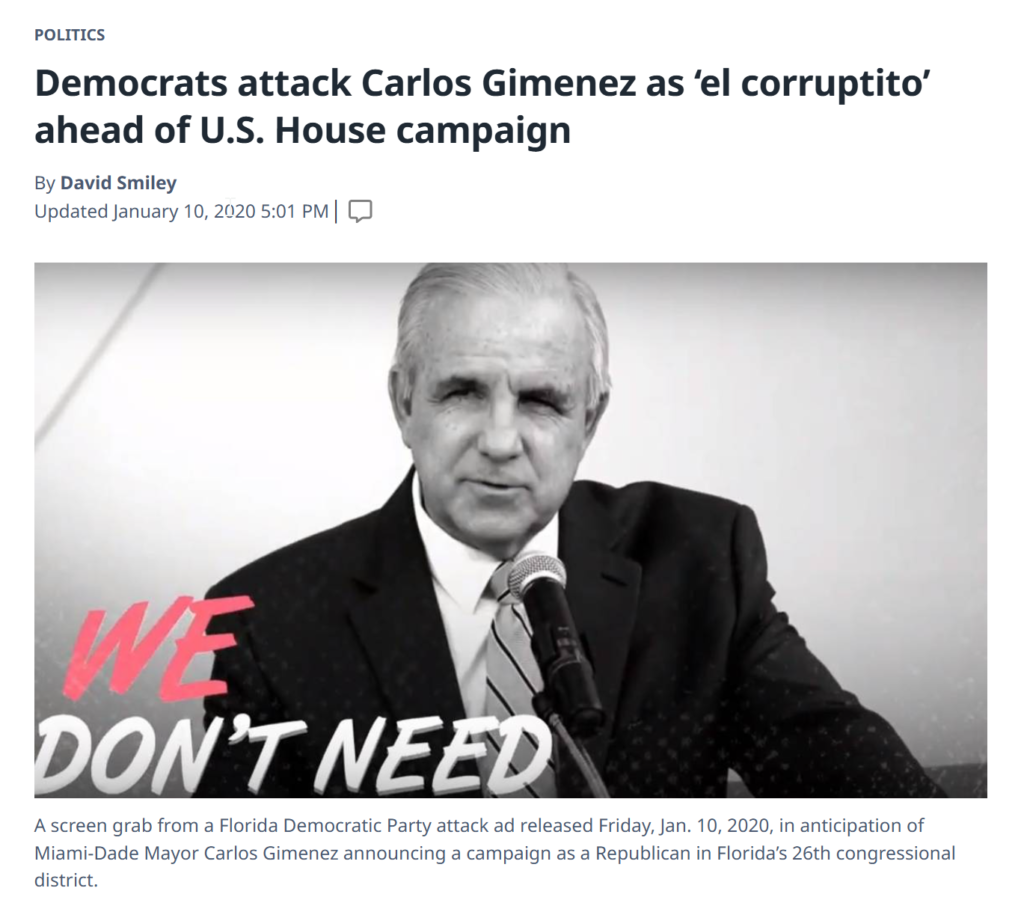
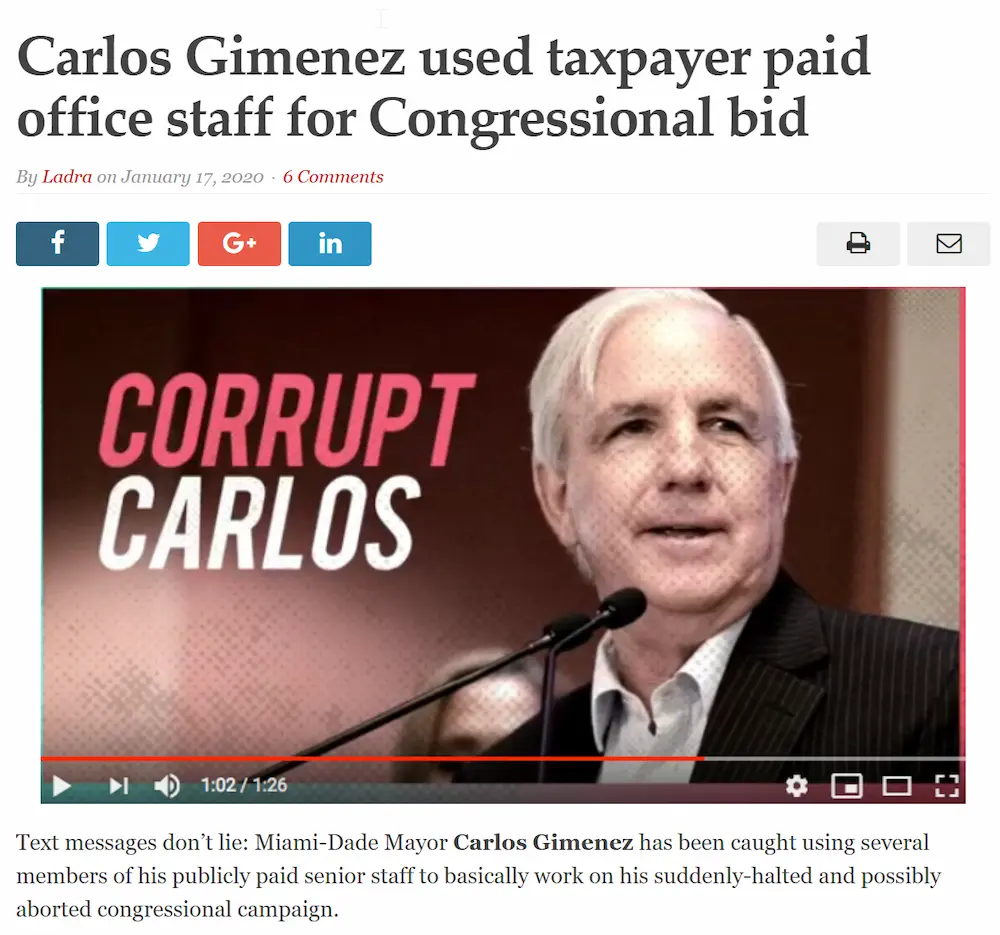
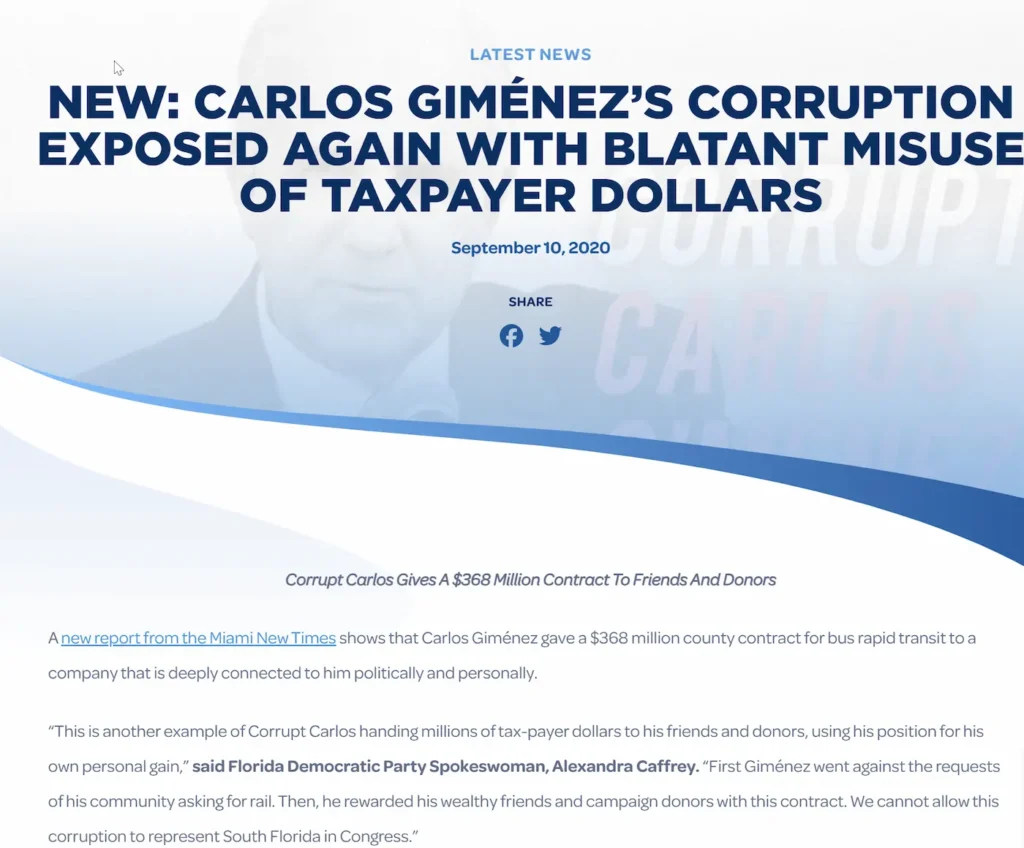

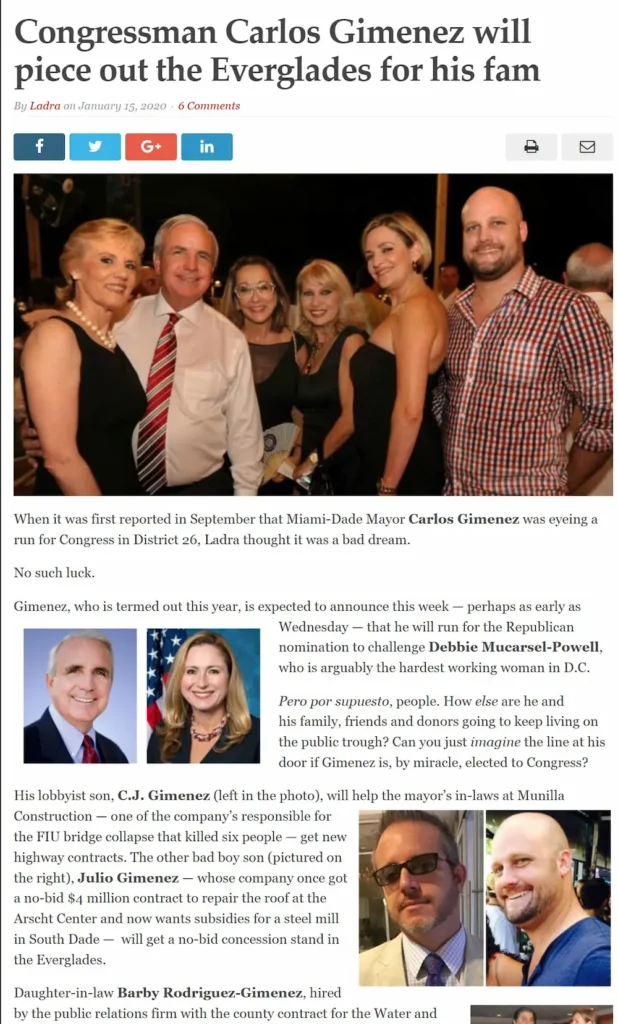
2023: Loss of Support in Hialeah
- Key Event: During a Donald Trump rally in Hialeah in November 2023, Giménez was booed by the crowd.
- Significance: This incident highlighted voter dissatisfaction with Giménez, even in Hialeah, a traditionally conservative and Cuban-American stronghold.
2024: Li’l Abner Mobile Home Park Case
The development project in the Li’l Abner Mobile Home Park in Sweetwater has been one of the most controversial events in Giménez’s career. Residents have alleged a premeditated strategy to transform the area into an apartment development, displacing current families.
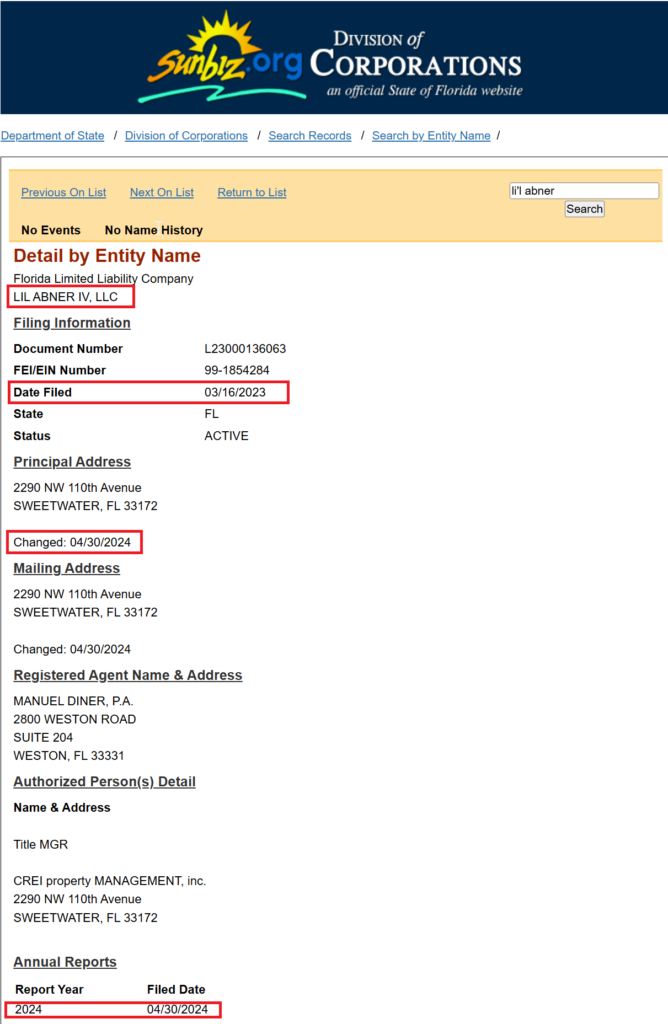
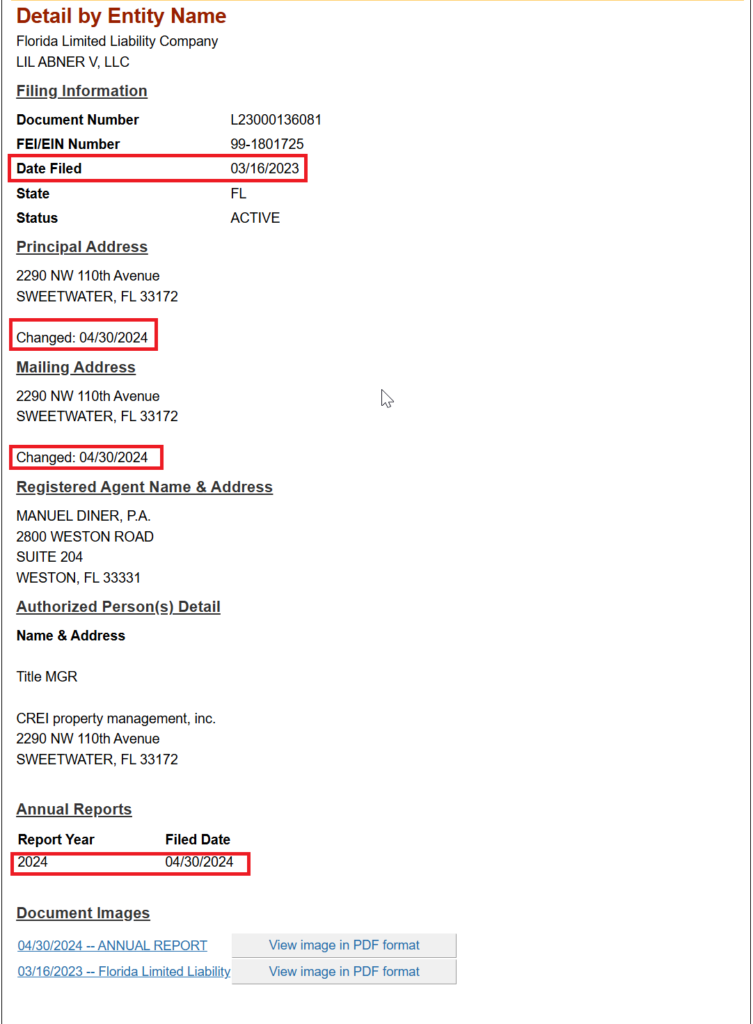
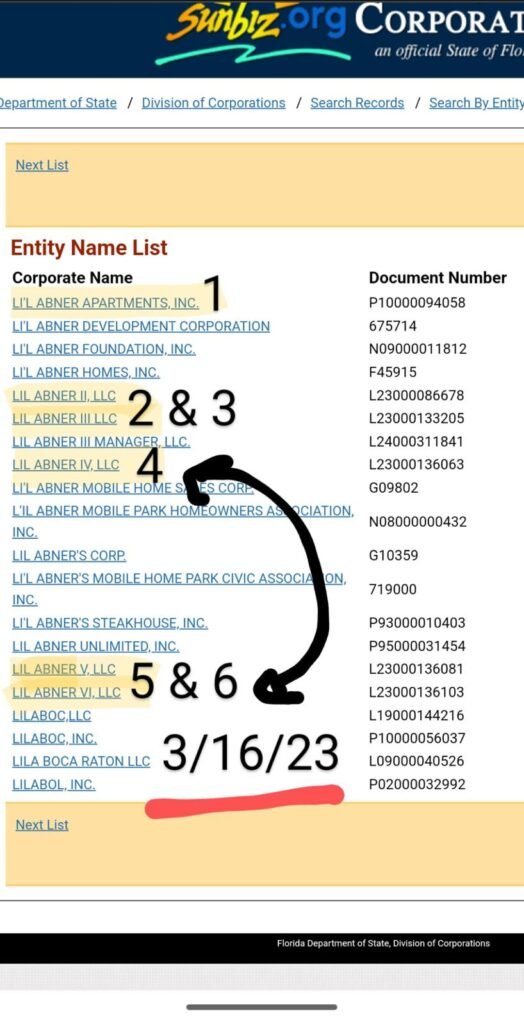
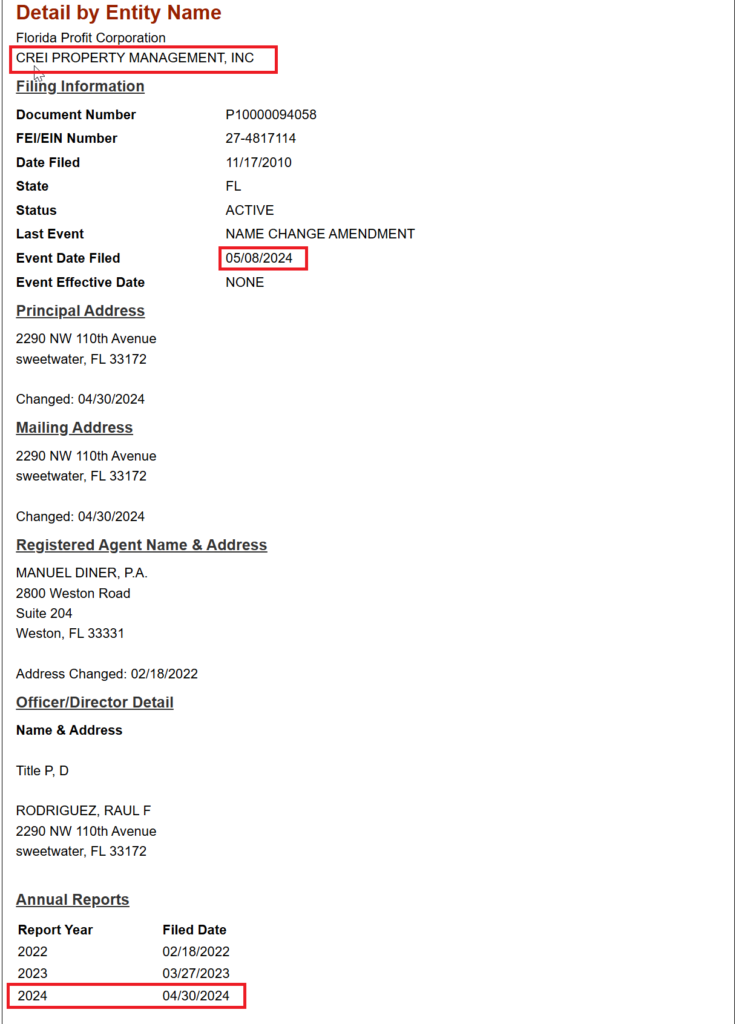
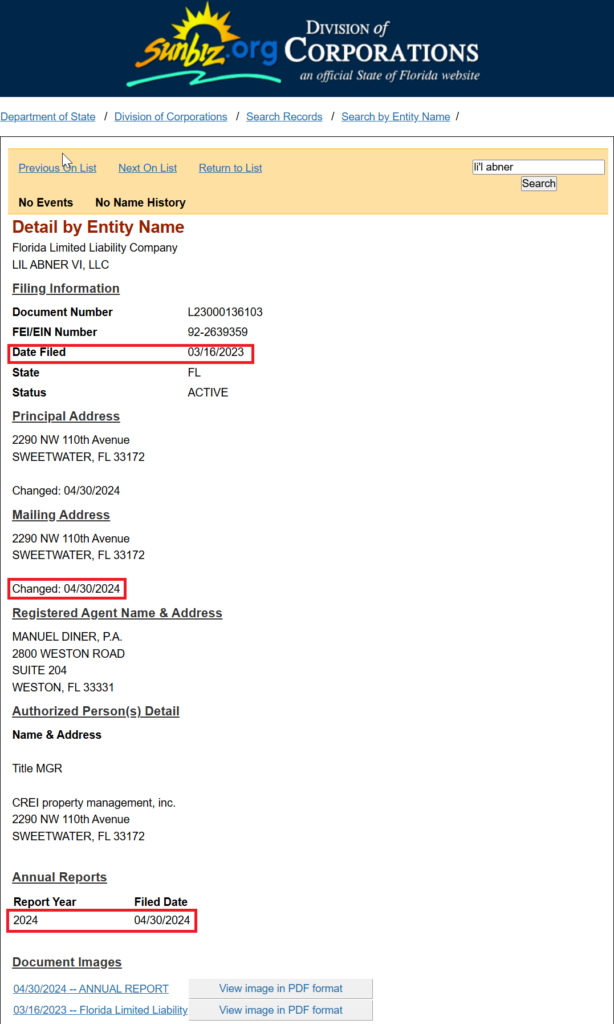
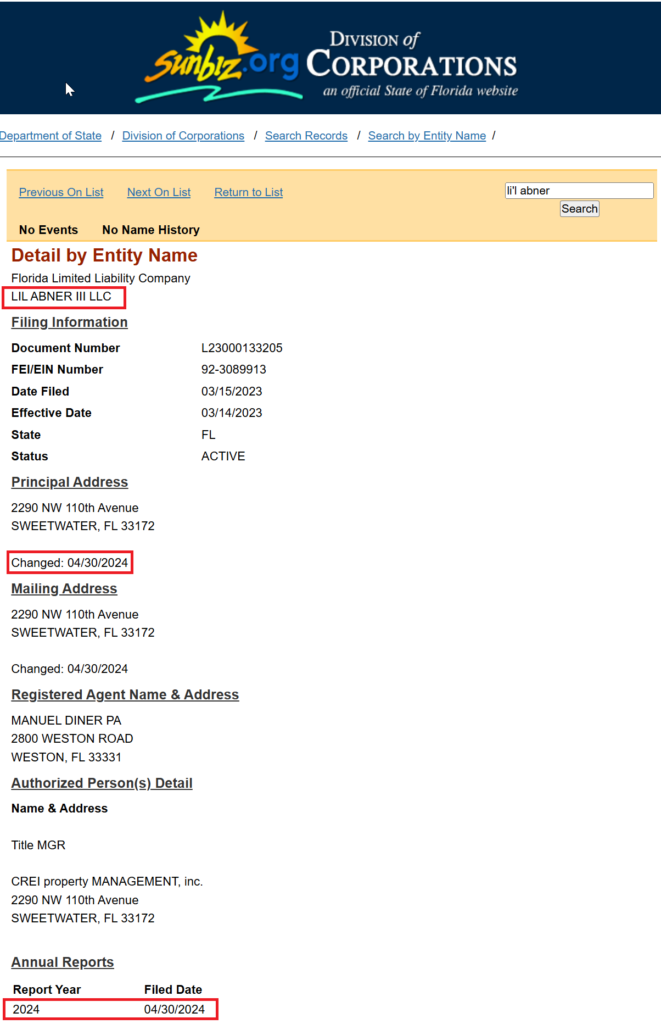
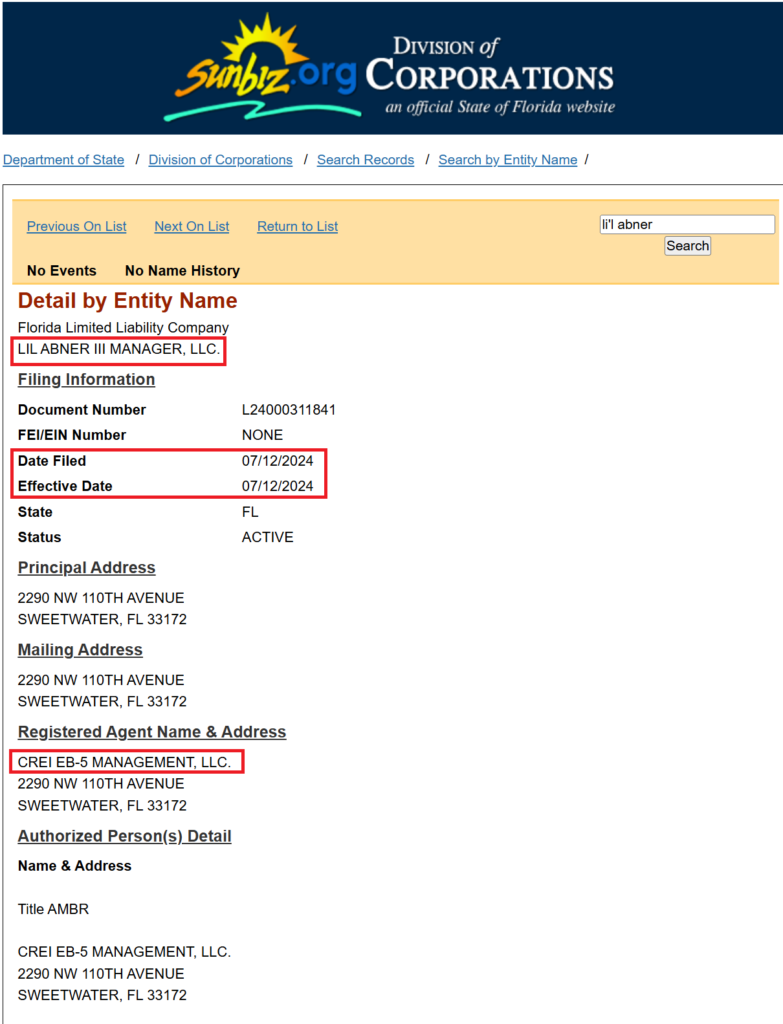
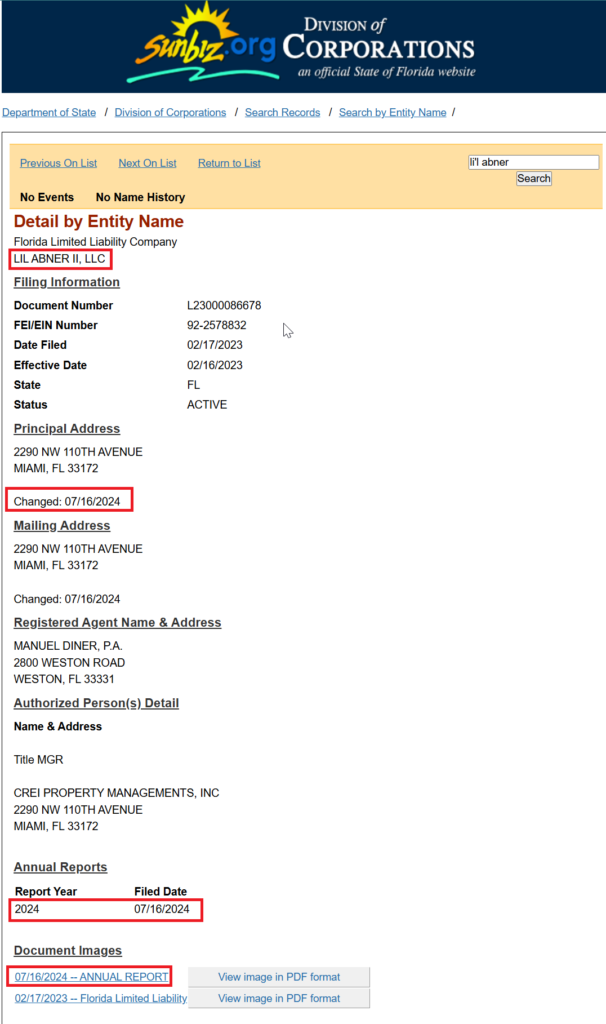
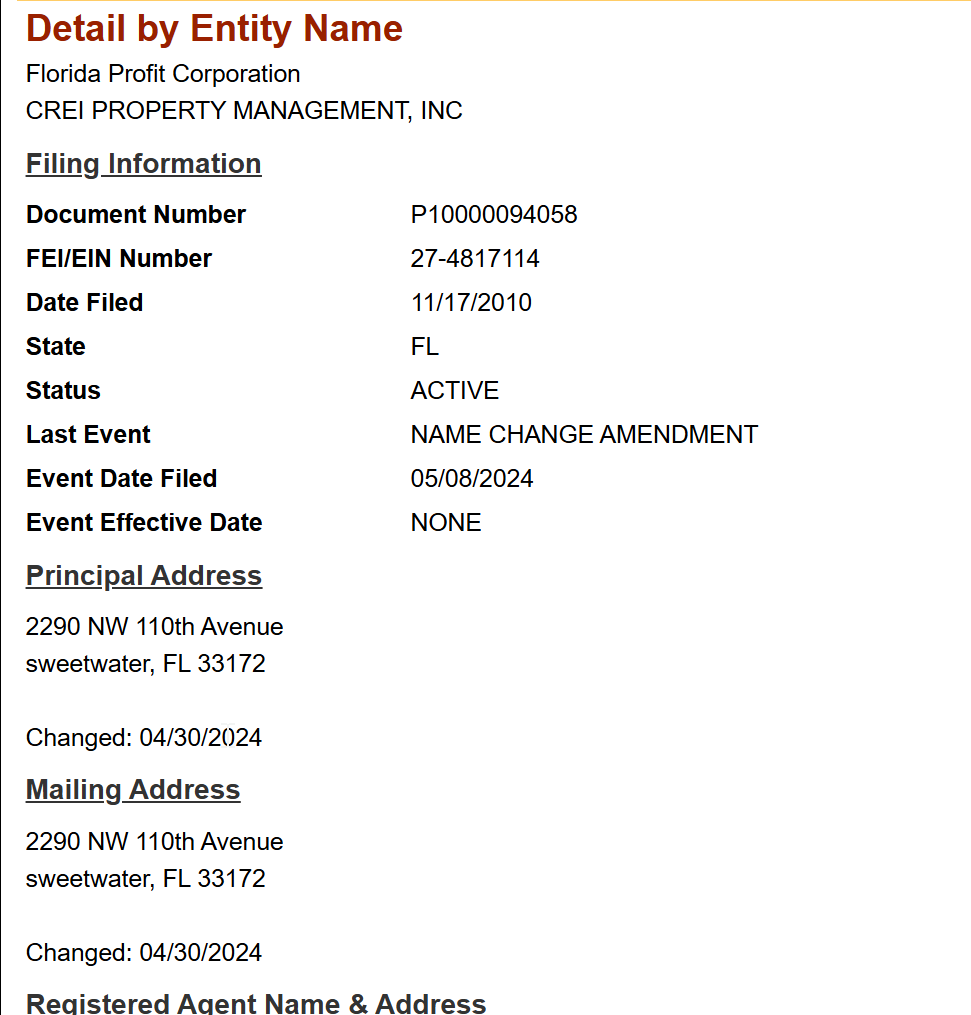
Chronology of Events in the Li’l Abner Case:
- April 30, 2024:
- Small companies connected to the project were registered. Residents allege this was an initial step to legally organize zoning changes and development.
- July 16, 2024:
- Additional companies associated with the project were created, further consolidating the business infrastructure needed to advance the planning.
- Zoning Changes:
- Under the leadership of Sweetwater Mayor Pepe Díaz, the local government approved a zoning change that allowed the mobile home park to be converted into an apartment complex.
- May 8, 2024:
- Giménez sent a letter to Congress requesting funding for the Sweetwater Housing Development Project, which includes 326 mixed-use multifamily units.
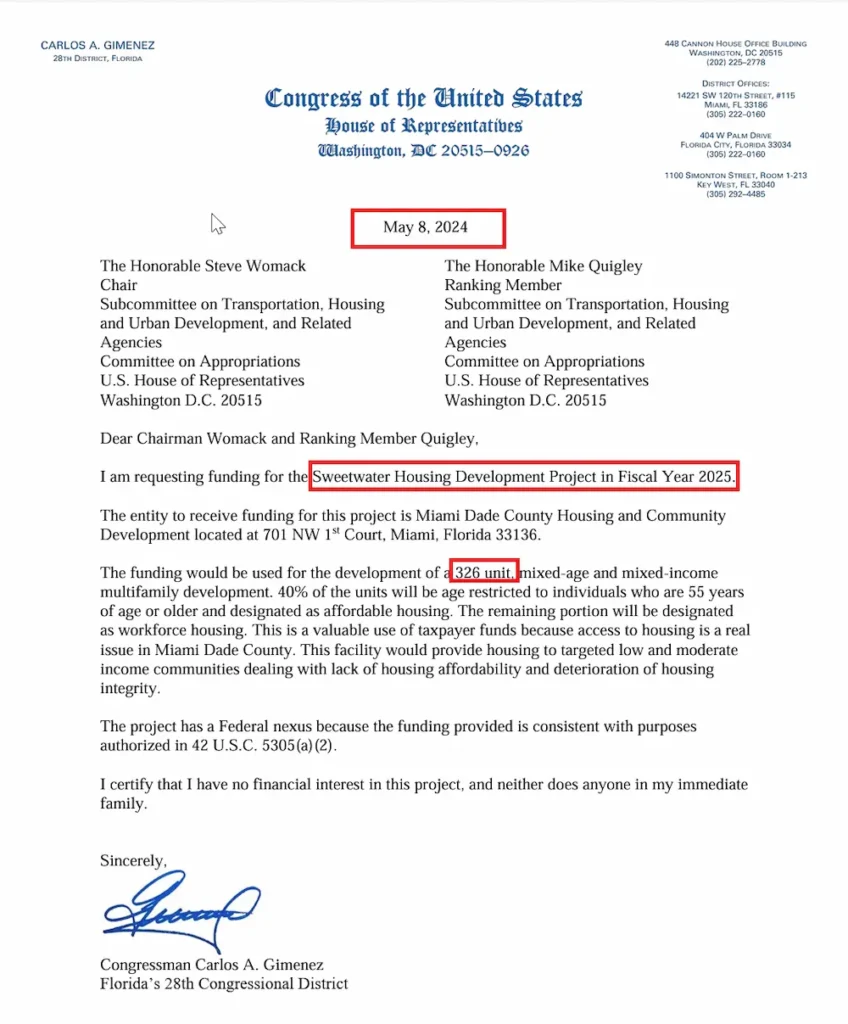
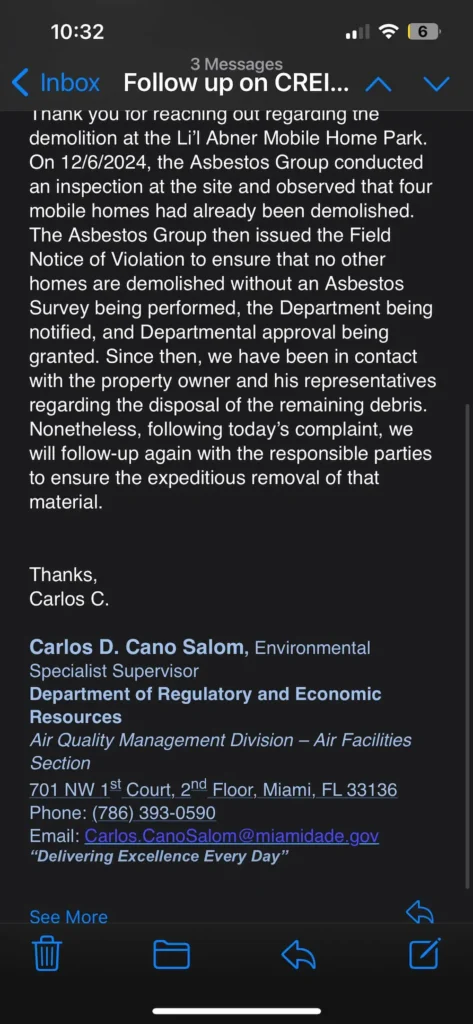
Evidence Presented by Residents:
- Company Registrations: Documents show the creation of companies prior to the zoning change.
- Lack of Consultation: Allegations that residents were not informed or included in the decision-making process.
- Contradictory Statements: Pepe Díaz publicly denied the property’s sale, despite evidence suggesting that the project was already underway.
Impact on Carlos Giménez’s Popularity
Loss of Trust in Miami-Dade
- Cumulative Cases: From the BRT contract to the Li’l Abner Mobile Home Park case, Giménez’s credibility has been significantly weakened among Miami-Dade voters, particularly in communities like Sweetwater and Hialeah.
Rejection in Hialeah
- Key Moment: The booing incident during the Trump rally in 2023 serves as a clear indicator of public discontent with Giménez, even in a traditionally Republican area.
Public Perception
- Giménez’s decisions have been perceived as favoring corporate and personal interests, often at the expense of local communities.
Conclusion
The timeline of events surrounding Carlos Giménez reveals a pattern of controversial decisions and questionable connections with developers and lobbyists. The Li’l Abner Mobile Home Park case is the most recent example of how these decisions have affected his popularity and credibility. While Giménez has denied having personal interests in these projects, the evidence and allegations presented by residents highlight the need for greater transparency and accountability in his leadership.
Frequently Asked Questions (FAQs)
What happened in the Li’l Abner Mobile Home Park case?
Residents allege that the project was strategically planned to displace families from the park, with zoning changes approved by local leaders and backed by Carlos Giménez.
How has this affected Giménez’s career?
The accumulation of controversies has weakened his public support, especially in Miami-Dade and Hialeah, and raised questions about his leadership.
What other events have eroded his popularity?
These include the $368 million BRT contract, the Genting monorail project, and the misuse of public resources in 2020.
What actions have residents taken?
Residents have protested and presented evidence demanding greater transparency, public consultations, and protections for affected communities.
What could happen to Giménez politically in the future?
If he fails to restore public trust, current controversies could hinder his reelection efforts and solidify his image as a politician disconnected from the needs of his constituents.
Want more post like this?
Head over to our homepage for the latest updates from South Florida and beyond:











